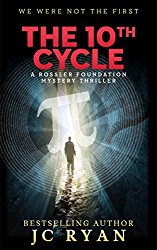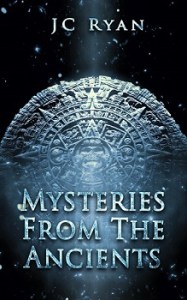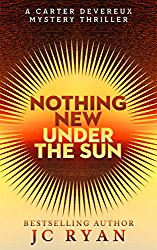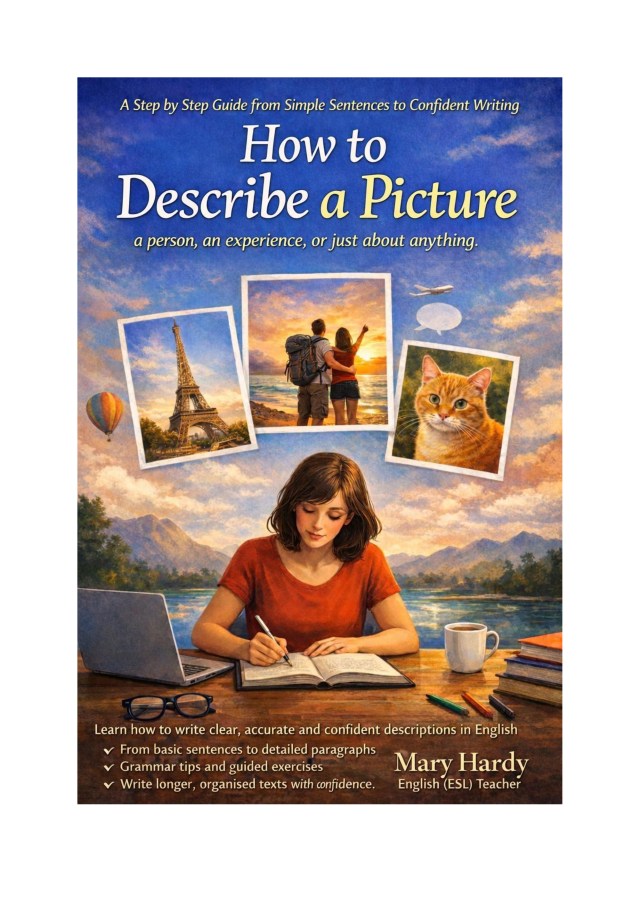Is it possible to become a successful English writer when English is your second language?



Imagine being taught English at school but not hearing it spoken outside of the classroom.
This is an everyday fact for many of you.
Imagine not using English until you have moved, as an adult, to an English speaking country.
Would it be possible to reach native-speaker proficiency?
I know that you’ve been told that adults can’t speak English like a native speaker unless they become proficient when they’re a child.
You may have also been told that to be considered proficient, you need to speak with an English accent. However, there is no one true English accent. All you have to remember is that you need to speak clearly so that people can understand you. Keep your accent. It is an important part of you. You don’t need to speak like a native!!

Penelope Cruz and Javier Bardem
Think about actors like Penelope Cruz, whose first language is Spanish and Audrey Tautou, whose first language is French. They both sound wonderful when they speak English with strong Spanish / French accents.
I have taught Asian students who don’t believe that they will be able to speak or write at an advanced level because their language is so different to English. Well, just listen to these Korean pop idols who have never lived abroad and yet speak fantastic English. What about Takahiro Moriuchi, the lead singer from the Japanese group One Ok Rock? He sings and speaks English very well and is very easy to understand.

Taka Moriuchi …

Korean pop idol – EXID’s Hani
In case you have not yet realised my point, it is this: you should never feel that your English is not good enough for speaking or writing! It’s amazing what you can achieve if you have the right attitude!
I would now like to introduce you to a man who didn’t start speaking and writing English every day as part of his job until he was nearly forty – who has become an internationally successful English writer – reaching #1 and #9 for two of his books on Amazon.
JC Ryan has become a bestselling author of spellbinding archaeological mysteries and crime suspense-thrillers.  He has published books in three series. They are all available from Amazon at very low prices.
He has published books in three series. They are all available from Amazon at very low prices.
You can sign up for his confidential mailing list and receive the Free eBook: MYSTERIES FROM THE ANCIENTS, an 80-page e-book about thought-provoking, unsolved archaeological mysteries. Click on the link to see an image of the free book and a description of the contents.
Reading is one of the best ways to improve your English because it gives you Grammar: word order and verb usage; Vocabulary, including prepositions, articles, phrasal verbs and collocations; and Knowledge. Reading helps you become more confident with your English. You also acquire more knowledge about the world and are better prepared to discuss all kinds of topics in Speaking Exams as well as in everyday conversations.
My advice to you is to check out the links above. Read about J C Ryan. Sign up for the mailing list and free e-book. Then, read it!
If you find MYSTERIES FROM THE ANCIENTS an exciting read, have a look at the three series J C Ryan has published. There are no free copies available. However, when I contacted Mr Ryan and asked if I could write about him on this blog, he very kindly provided the first chapter of his first novel, The Tenth Cycle, for me to use. I feel very privileged to be able to share it with you.
So, for your enjoyment, here is a sample of what can be achieved by a writer whose first language is not English:
The Tenth Cycle
A Thriller
A Rossler Foundation Mystery
By JC Ryan
This is the first book in the Rossler Foundation Mystery Series.
Want to hear about special offers and new releases?
Sign up for my exclusive mailing list JC Ryan Books
Copyright ©2014 JC Ryan
All Rights Reserved.
Chapter 1 – Near Kabul, Afghanistan, July 2009
Daniel Rossler and two of his friends from ISAF
headquarters in Kabul, Afghanistan set out early in the morning
on Daniel’s birthday, July 8th, on the A1 toward Jalalabad some
one-hundred and fifty klicks and three hours or so to the east.
IEDs, or Improvised Explosive Devices had made this stretch of
road one of the most dangerous places in the world.
Daniel, an irrepressible 26-year-old journalist embedded
with the Marine unit, matched his comrades’ skill for skill except
in armed combat. As a journalist, he was neither expected nor
permitted to carry a weapon, though his upbringing in the North
Carolina Mountains had included skill with a hunting rifle. Now,
his preferred physical activities were hiking, swimming, and the
occasional impromptu wrestling match with the two friends in the
Jeep with him today or other opponents from their unit. At sixfoot-three,
his wiry frame was perhaps a little lighter than most of
his heavily-muscled Marine opponents, but his quick thinking and
unconventional moves allowed him to win more often than he
lost.
“Hey, Sarge,” Rossler yelled over the noise of the vehicle
on the highway. “Isn’t this the road that the Taliban keeps
bombing?”
“You afraid of a little rebel IED, Rossler?” the sergeant
retorted.
That effectively shut down any further discussion on the
matter. The one thing Daniel couldn’t allow was his Marine
friends thinking he was a wuss. Traffic was unusually light this
morning, which should have warned the three friends, especially
the Marines. Instead, they were elated to be making such good
time during the early hours before the heat of the day set in.
Seeing the well-populated area on both sides of the road
for the first fifty klicks, Daniel wondered at the logic of the Taliban
rebels who harassed travelers along this road without regard to
loyalty. Anyone could be killed by an IED, even Afghan citizens
making their way to market, or children.
He was aware of the joint task force squads that had been
specially trained to sweep for and dispose of the deadly items,
though. Daniel felt as safe on this trip as he did anywhere in
Afghanistan, which was to say, not very. Nevertheless, today’s
mission would provide good background for his next column. It
was important work, and Daniel was good at it.
Daniel didn’t realize he had stopped watching the road
ahead until he heard Sgt. Ellis shout, “Look out!” He found himself
in mid-flight as the Jeep swerved violently, and then overturned
beside the road, pinning Ellis and the driver, Sgt. Pierce, and
throwing Daniel clear. He was trying to sort himself out to stand
when shots rang out from further up the road.
Continue reading →




 Before I do, I just wanted to say thank you — for reading, commenting, and trusting me with your English learning. I hope this book will feel like I’m sitting beside you, explaining things step by step.
Before I do, I just wanted to say thank you — for reading, commenting, and trusting me with your English learning. I hope this book will feel like I’m sitting beside you, explaining things step by step. 










 He has published books in three series. They are all available from
He has published books in three series. They are all available from 

